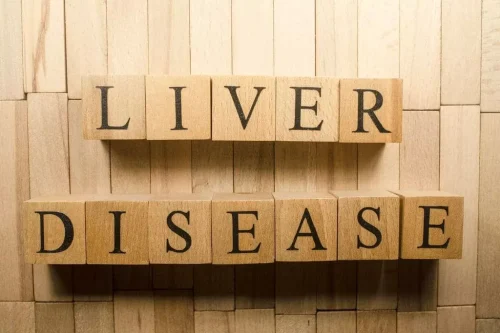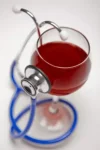
That’s because alcohol can weaken your immune system, slow healing and make your body more susceptible to infection. Moreover, you shouldn’t use NyQuil as a sleep aid or for long-term treatment of symptoms. If you take more than the recommended dose, you may experience withdrawal symptoms.

Figure out how much you actually drink
Keep your consumption to a few drinks per week, and avoid excessive consumption. Even though so many factors come into play, the average metabolic rate to remove alcohol is about one drink per hour. Depending on the extent of liver damage you have, you may need to completely abstain from alcohol in order to give your liver the best chance for recovery.
Can you “sober up” faster with food or coffee?
- There’s nothing wrong with celebrating with an alcoholic drink here and there.
- Here, a physician breaks down the alcohol metabolism process and how booze can be detected in your body.
- Your liver has enzymes that work like special tools to help metabolize (break down) different toxins that enter your body, such as alcohol.
- After a night of drinking, you may be feeling worse for the wear.
- Alcoholics Anonymous is available almost everywhere and provides a place to openly and nonjudgmentally discuss alcohol issues with others who have alcohol use disorder.
- Alcohol can be detected in the hair for around 90 days after an alcoholic drink was consumed.
- If you’re not sure if your drinking crosses a certain line or not, try measuring your alcohol intake.
The trillions of microbes in your colon and large and small intestines are critical to proper digestion. They also help fend off inflammation and support healthy metabolism. But when you ingest too much alcohol for your liver to process in a timely manner, a buildup of toxic substances begins to take a toll on your liver. You probably already know that excessive drinking can affect you in more ways than one. Talking to your doctor before taking NyQuil and other medications is best. They can help you understand the possible risks and decide if it’s a safe choice for you.
Hangover Cures: Remedies That Work and Don’t Work
It can be an alternative to inpatient or residential treatment or a step-down from one of those programs. Your symptoms may last a week or more, typically hitting their worst within hours. You’re more likely to stick with a detox program when you have lots of help. Detox alone isn’t treatment, but it’s the first step to getting better for people who are dependent on alcohol.
Alcohol Detox Timeline

The alcohol detox phase can involve withdrawal symptoms ranging from mild intensity to life-threatening. Oftentimes, the longevity and severity of your alcohol use disorder (AUD) will play a role in the withdrawal symptoms you experience. For example, individuals who have struggled with years of heavy drinking what will remove alcohol from your system are more likely to develop serious withdrawal symptoms like seizures or delirium tremens. The occasional hangover may just be the reminder you need to be more mindful of drinking moderately next time. But if hangovers become more frequent, it might be time to get some help to cut back on your consumption.
- However, long-term or excessive use can slow down that process and could damage your heart, liver, kidneys, and gut health.
- First, there are the technical definitions of blood alcohol level (BAC) and legal intoxication.
- Just like a broken bone or infection needs time to heal, so does an overworked liver.
- It can start within two to five days after your last drink and can be life-threatening.
- Alcohol can be detected in a urine test between 12 and 48 hours after your last drink through an ethyl glucuronide (EtG) drug test.
First Six to Twelve Hours
Dry-brushing your skin with a soft brush before a bath or shower may help your skin look and feel better if done correctly. You can remove dead skin cells, which may smoothen your skin texture, by mechanically exfoliating. Keep in mind that exfoliation may increase your risk of acne and redness if you do so too harshly. And prolonged alcohol use can lead to mental health conditions like anxiety and depression. The morning after a night of over-imbibing can cause some temporary effects on your brain.

For anyone with a family history of alcohol use disorder, there is a higher risk of also developing the condition. For those people, it may be wise to avoid consuming alcohol altogether. Some proponents suggest that carbon or charcoal capsules, which people can buy in health food stores, may help with sobering up.
Call your local emergency services if you suspect alcohol poisoning in a friend or loved one. However, the safest option for nursing people is not to drink any alcohol. However, this can vary somewhat based on the type of alcohol you drink, your physical health, or your genetic predisposition. Just like a broken bone or infection needs time to heal, so does an overworked liver.

Maybe you’ve never been interested in logging your innermost thoughts, but journaling can be a great tool to track your feelings as you work on quitting alcohol. Feeling at your best physically can boost resilience and emotional strength, equipping you to weather challenges that trigger the desire to drink. From month-long sobriety challenges to the Sober Curious movement, more and more people are taking a closer look at the role alcohol plays in their lives.
